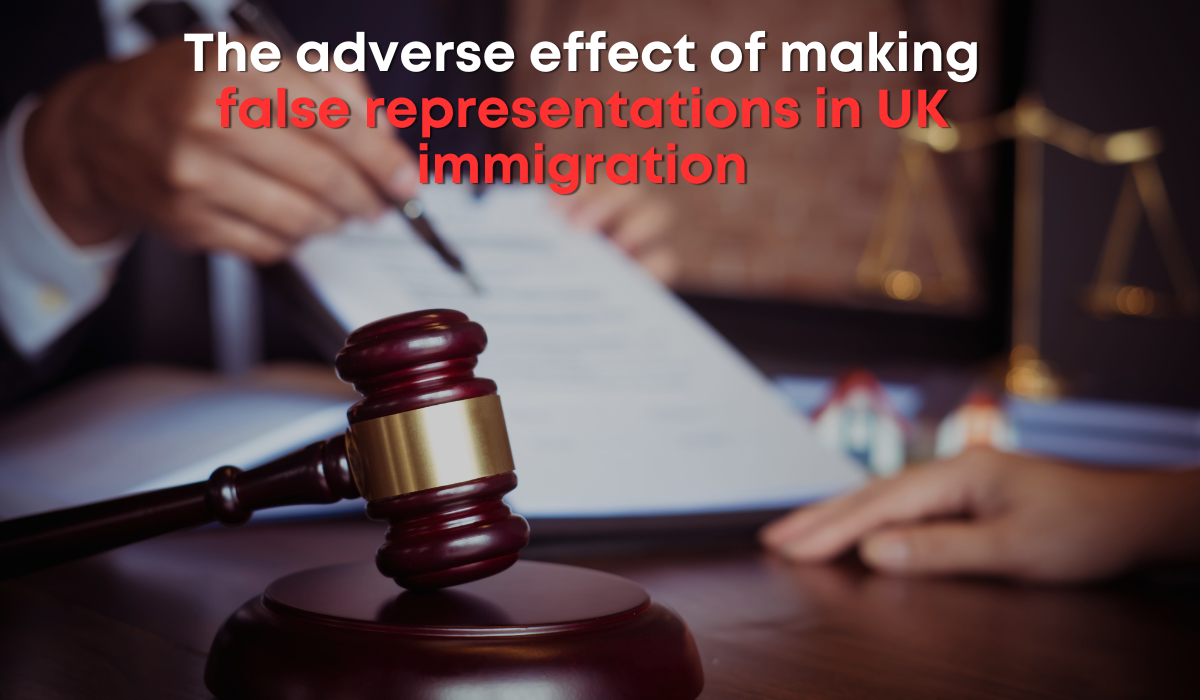

The adverse effect of false representations in UK immigration
In a pivotal ruling, the Court of Appeal has affirmed the application of paragraph 322(1A) of the immigration rules in cases where an applicant’s circumstances have shifted, yet the basis of their application contains discrepancies rooted in previous submissions. The decision in Al-Azad v Secretary of State for the Home Department [2024] EWCA Civ 407 underscores the rigour with which the UK’s immigration laws are enforced, particularly concerning false representations.Background of the caseThe case involved an appellant, who entered the UK on a student visa in 2009 and subsequently transitioned through various immigration statuses, ultimately applying for indefinite leave to remain (ILR) under the long residence provisions. This followed a protracted and undecided application under the Tier 1 (Entrepreneur) route, initiated in 2013 but marred by allegations of fraud connected to the appellant's immigration advisers.The Home Office revoked his permanent residence card in 2020, citing false representations made in his earlier Tier 1 (Entrepreneur) application—a decision initially upheld by the First-tier Tribunal and later the Upper Tribunal. The case escalated to the Court of Appeal following these successive rejections.Legal arguments and Court’s decisionThe core of the legal debate hinged on whether the false representations made during the original Tier 1 (Entrepreneur) application could influence the outcome of the varied application for ILR. The appellant argued that the later application for ILR, which did not contain false representations, should be treated as distinct and not tainted by earlier discrepancies.However, the Court of Appeal clarified that an application remains continuous, even when varied, and does not reset or erase the slate of previous representations. This interpretation ensures that any falsehoods or misrepresented facts in the original application continue to hold relevance in any subsequent variations of that application.Furthermore, the court dismissed the appeal because the tribunal had correctly applied the rules, asserting that the appellant’s initial misrepresentations under the Tier 1 route were rightfully considered in assessing his later ILR application.Implications for future applicationsThis ruling sends a clear message about the importance of accuracy and honesty in all dealings with the UK Home Office. It confirms that changes to an application do not conceal initial misrepresentations, and these discrepancies can and will be used to assess the legitimacy of an individual's immigration status at any point.The decision also highlights the importance of understanding the interplay between various immigration rules and the potential long-term consequences of any information provided in immigration applications. This is particularly relevant for immigration advisors and applicants navigating the complex landscape of UK immigration law, emphasizing the need for rigorous compliance and thorough legal oversight.Get in touch: For a comprehensive understanding of your options or queries on UK immigration matters, contact GigaLegal Solicitors at 02074067654 or click here to book a no-obligation consultation with an immigration expert.
How we help?

Over 400 cases solved
At GigaLegal, we treat your legal matters with the same care and urgency as if they were our own. Our highly experienced solicitors are committed to protecting your rights, freedoms, and future. With a results-driven mindset and a deep sense of responsibility, we work tirelessly to deliver the strongest possible outcome for every client we serve.
.png)
.png)
.png)
.png)
.png)
.jpg)
.jpg)
Aldgate branch
Dagenham branch
.jpg)



.png)
.jpg)
.jpg)
.jpg)
.jpg)
.jpg)

.jpg)
.jpg)
.jpg)